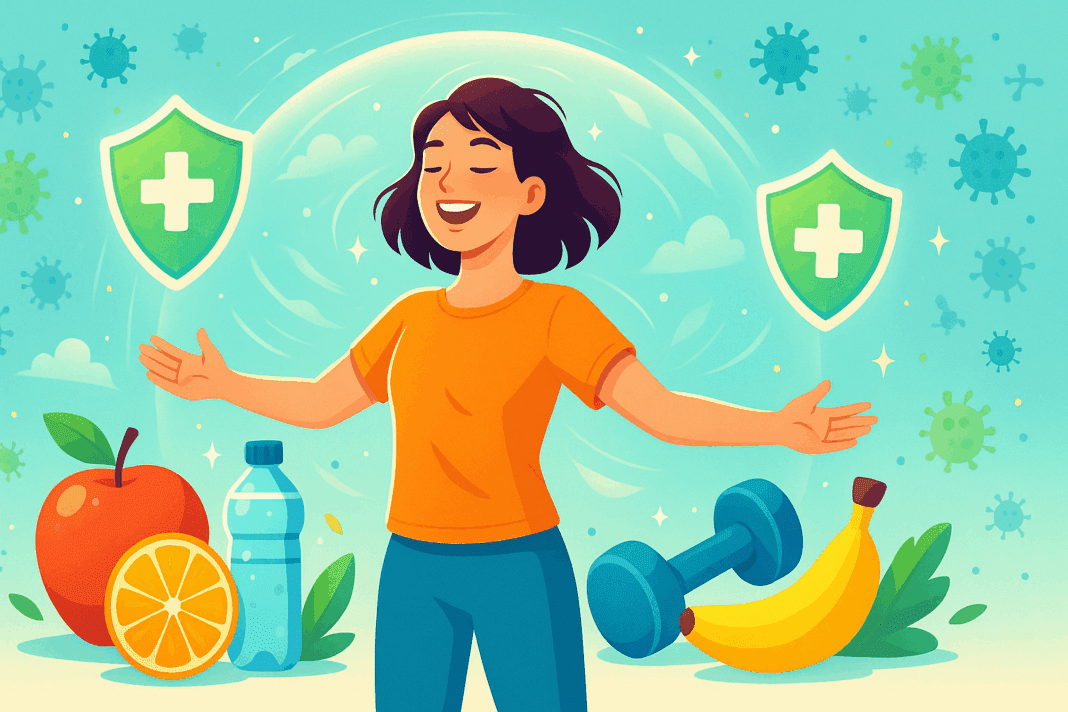In a world teeming with contagious viruses, stress-induced immune suppression, and fast-paced lifestyles that often compromise our health, many people are left wondering: how can you prevent getting sick amid it all? This question gains more urgency during seasonal transitions, global outbreaks, and periods of heightened stress. While there is no singular magic bullet that can guarantee immunity, a series of essential daily habits, grounded in science and supported by public health guidance, can significantly reduce your vulnerability to common conditions like the cold, flu, and respiratory infections. These habits don’t merely act as passive buffers but serve as proactive strategies that empower individuals to enhance their well-being and build resilience. By integrating intentional, well-researched actions into your routine, you not only reduce your chances of falling ill but also support long-term physiological balance and health.
You may also like: Essential Tips for Prevention from Flu and Other Common Respiratory Infections
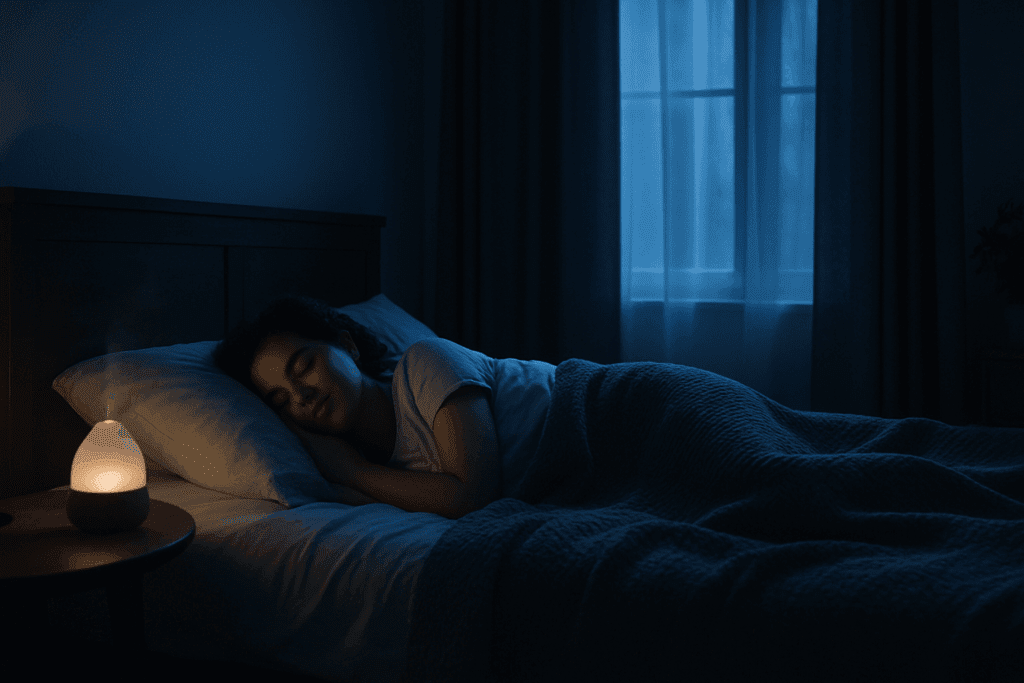
Prioritizing Sleep as a Foundational Defense
The cornerstone of good health often begins with something deceptively simple: sleep. Adequate, high-quality rest is among the most powerful tools for fortifying the immune system, yet it is frequently neglected in our productivity-driven culture. During sleep, the body enters a state of repair and regeneration. The immune system releases cytokines, which are critical for mounting an effective response to infections. A lack of sleep can reduce the production of these protective molecules, impairing the body’s ability to fight off both viral and bacterial invaders. Research shows that people who regularly sleep less than six hours a night are significantly more likely to catch a cold compared to those who sleep seven hours or more. This is not merely a matter of fatigue—it’s a quantifiable biological disadvantage.
Incorporating good sleep hygiene into your daily routine means setting a consistent bedtime and wake-up time, even on weekends. The bedroom environment should be cool, dark, and quiet to facilitate uninterrupted rest. Avoiding screens at least an hour before bed can minimize blue light exposure, which disrupts melatonin production and circadian rhythms. Caffeine and alcohol, though common evening indulgences, also compromise sleep quality and should be minimized or avoided before bedtime. By making these small yet impactful adjustments, you support your body’s ability to recover, regulate inflammation, and prepare for daily microbial threats.
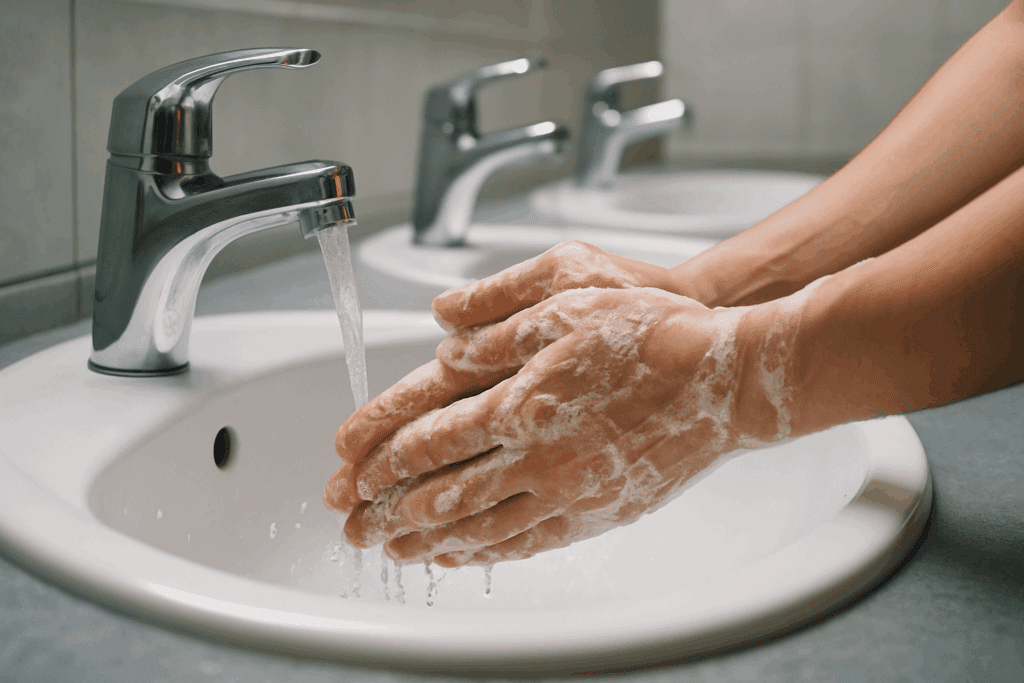
The Critical Role of Hand Hygiene in Disease Prevention
One of the simplest and most effective ways to stop yourself from being sick is often one of the most overlooked: proper handwashing. Your hands are your most frequent point of contact with shared surfaces—doorknobs, phones, handrails, credit card machines—and, consequently, a major vector for germs. Diseases like the flu, common cold, and even respiratory infections like RSV can spread rapidly through touch, and without rigorous hygiene practices, the transmission cycle remains uninterrupted.
To truly understand how to avoid getting sick, it’s essential to internalize the timing and technique of hand hygiene. The Centers for Disease Control and Prevention (CDC) recommends scrubbing hands with soap and water for at least 20 seconds, especially after using the bathroom, before eating, and after coughing or sneezing. When soap and water are not available, alcohol-based hand sanitizers with at least 60% alcohol content can serve as a reasonable alternative. However, they are less effective when hands are visibly dirty or greasy. Developing the habit of regular hand hygiene not only shields you but also protects those around you—especially the immunocompromised—from preventable illnesses.
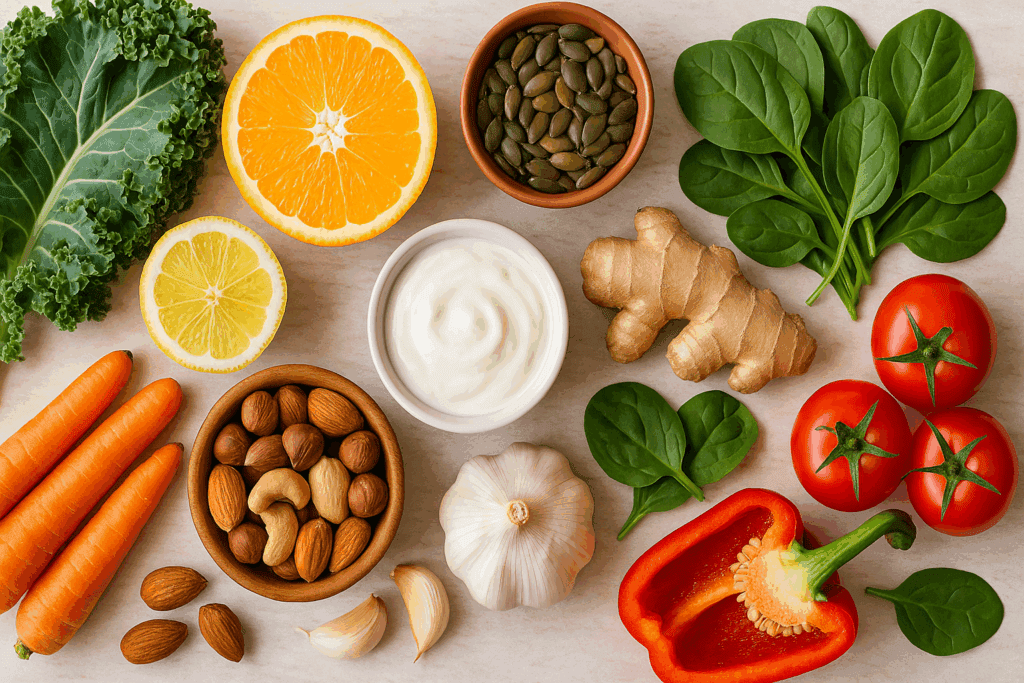
Building Immunity Through Balanced Nutrition
What you eat shapes how you feel—and more importantly, how your body fights illness. Nutrition forms the bedrock of immune competence. Micronutrients like zinc, vitamin C, vitamin D, and selenium play critical roles in supporting white blood cell production and function, while antioxidants from fruits and vegetables combat oxidative stress and inflammation. A colorful, varied diet rich in whole foods gives your immune system the ammunition it needs to respond quickly and effectively to pathogens.
A diet that includes leafy greens, citrus fruits, lean proteins, nuts, seeds, and whole grains should form your daily standard. Fermented foods such as yogurt, kimchi, and kefir contribute probiotics that help maintain a healthy gut microbiome—an essential but often underappreciated component of immune health. Since nearly 70% of the immune system resides in the gut, maintaining digestive health is vital to keeping sickness at bay. Those wondering how to prevent getting sick would do well to pay close attention to gut-supportive foods and stay away from refined sugars, ultra-processed meals, and excessive alcohol, all of which can weaken immune defenses over time.
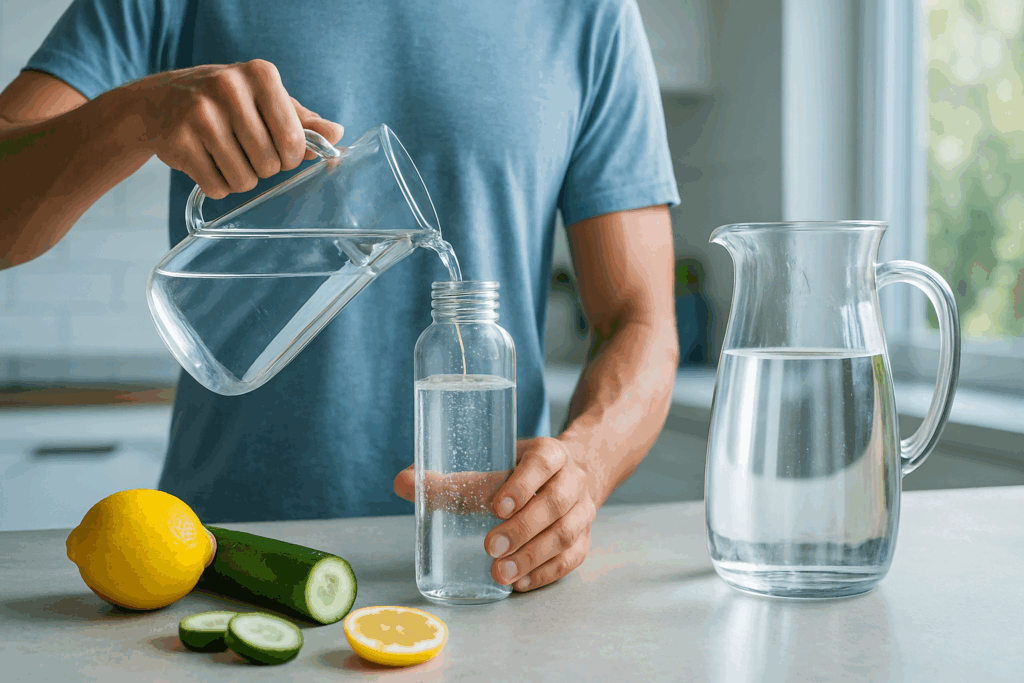
Hydration: An Underrated Shield Against Illness
Water is often underestimated in discussions about health, yet it plays a central role in maintaining immune function. Every cell, tissue, and organ in the body relies on hydration to function optimally. Mucous membranes, for example, form the first line of defense against airborne pathogens. When dehydrated, these barriers become dry and ineffective, making it easier for viruses and bacteria to penetrate.
Staying adequately hydrated helps the kidneys flush out toxins, supports optimal lymphatic drainage, and ensures efficient transportation of nutrients to cells. Adults should aim to consume at least eight 8-ounce glasses of water daily, although individual needs may vary based on climate, activity level, and overall health. Adding hydrating foods like cucumbers, watermelon, and oranges to your diet can further support fluid intake. Herbal teas rich in antioxidants, such as green tea or echinacea, can provide additional immune-boosting benefits. For those exploring how to feel better when sick, sipping warm fluids can also soothe the throat, reduce congestion, and improve comfort during recovery.
The Impact of Physical Activity on Immune Function
Movement is medicine. Regular physical activity not only improves cardiovascular health and mental well-being but also directly enhances immune function. Moderate exercise increases circulation, which allows immune cells to move more efficiently throughout the body. It also reduces levels of stress hormones like cortisol, which in high amounts can suppress immune activity. Exercise also supports lymphatic drainage, a process essential for filtering out cellular waste and pathogens.
It’s important to differentiate between moderate and excessive exercise, however. While a daily brisk walk, yoga session, or 30-minute bike ride can be protective, overtraining without adequate rest can impair immunity. Those engaged in high-intensity sports should ensure they’re consuming enough calories, staying hydrated, and scheduling rest days to support recovery. In the broader conversation about how to keep from getting sick, daily movement remains a pillar of preventive health.

Stress Management: A Mental Strategy for Physical Protection
The link between chronic stress and physical illness is now well-established in medical literature. Stress activates the hypothalamic-pituitary-adrenal (HPA) axis, leading to the release of cortisol, a hormone that, in excess, can inhibit the production of immune cells. This means that even with excellent nutrition and hygiene, high stress can still compromise your ability to ward off infections. Emotional strain, especially when prolonged, lowers resistance to the very illnesses you are trying to avoid.
Managing stress involves more than simply relaxing—it requires a structured approach. Mindfulness practices such as meditation, deep breathing, and progressive muscle relaxation have been shown to reduce inflammation markers and improve emotional regulation. Journaling, time in nature, and cultivating supportive relationships also offer buffering effects. Incorporating these methods consistently is crucial for those actively seeking answers to how can you prevent getting sick with a holistic mindset. Psychological resilience, just like physical immunity, needs intentional nourishment.
Vaccination: A Proactive Step in Preventing Sickness
While lifestyle choices are vital, modern medicine also offers powerful tools for disease prevention—chief among them being vaccination. Immunizations train your immune system to recognize and combat pathogens more effectively by introducing harmless versions of the virus or bacteria. This preparation reduces your risk of falling ill and minimizes symptom severity if you are exposed. Annual flu vaccines, for example, are reformulated based on prevailing strains and are especially recommended for vulnerable populations like the elderly and chronically ill.
COVID-19 vaccinations, pneumococcal shots, and pertussis boosters also fall under this umbrella of preventive care. For those still learning how to stop myself from being sick in high-risk environments such as healthcare settings, schools, or public transportation hubs, vaccinations offer a reliable layer of protection. It’s essential to consult healthcare providers to determine which vaccines are appropriate based on your age, health status, and travel history.
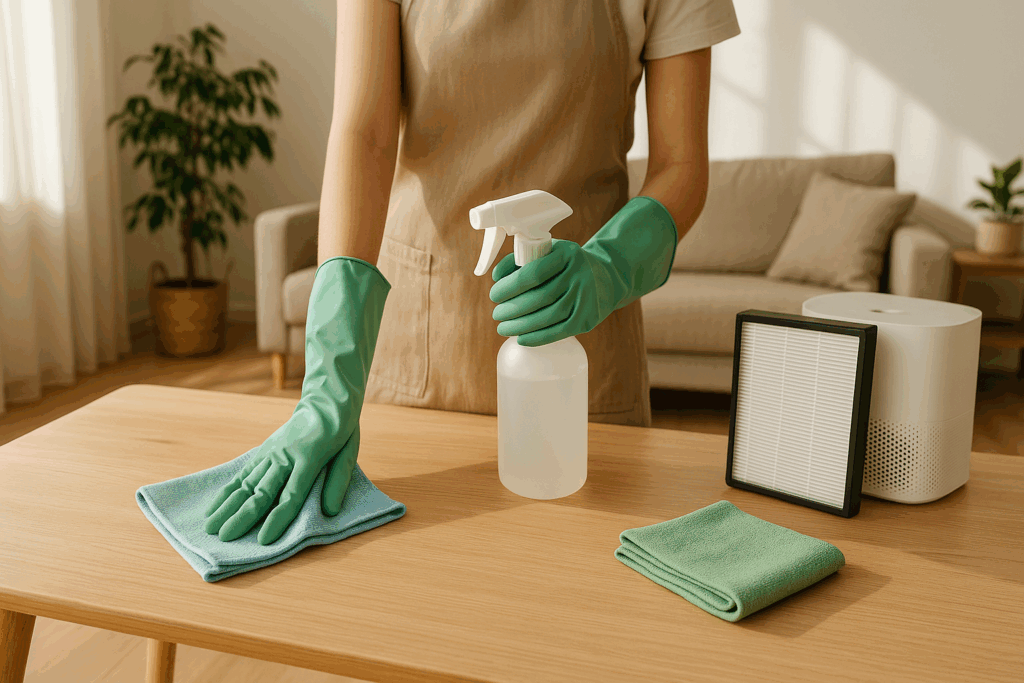
Clean Environments for a Clean Bill of Health
A hygienic living and working space significantly reduces your chances of exposure to harmful pathogens. High-touch surfaces like countertops, light switches, and remote controls can harbor viruses for hours or even days. Incorporating regular cleaning routines with disinfectants—especially during cold and flu season—mitigates the risk of household transmission. Additionally, improving indoor air quality through HEPA filters, proper ventilation, and even houseplants can decrease respiratory irritants and microbial load.
Cluttered environments are not just unsightly; they can create stress, harbor allergens, and impede cleanliness. Keeping your living space organized and regularly sanitized can therefore contribute both directly and indirectly to better immune health. Those seriously considering how to get rid of sickness before it takes hold should recognize the role that environmental hygiene plays in creating a low-risk, health-supportive space.
Social Awareness: The Ethics and Efficacy of Illness Prevention
Understanding how to prevent getting sick also involves considering your social impact. If you’re feeling unwell, staying home helps prevent spreading illness to coworkers, classmates, or vulnerable individuals. Practicing respiratory etiquette—such as coughing into your elbow and wearing masks when symptomatic—is not just courteous but scientifically validated as a way to reduce airborne transmission. During peak infection periods, minimizing unnecessary social gatherings and opting for virtual alternatives can serve both personal and public health.
It’s important to also maintain awareness without succumbing to paranoia. Over-sanitization or excessive germophobia can sometimes do more harm than good by disrupting beneficial microbial communities or increasing anxiety. The goal is to find a balanced, evidence-based approach that acknowledges shared responsibility and self-care. By acting with mindfulness and integrity, you contribute to a healthier community ecosystem.
Listening to Your Body and Responding Early
The body sends signals before full-blown illness strikes: fatigue, scratchy throat, mild headaches, or subtle changes in appetite. Recognizing these early warnings and responding appropriately can shorten the duration of illness or even prevent it altogether. This requires tuning into your body’s baseline rhythms and being honest about deviations from them. If you find yourself wondering how to feel better when sick, the best answer is often to rest, hydrate, and temporarily reduce your workload at the first signs of imbalance.
Herbal remedies like elderberry, echinacea, and ginger can offer supportive benefits when taken at the onset of symptoms, although they should never replace professional medical care for more serious concerns. By respecting these early cues, you allow the body the resources it needs to mount a defense before pathogens take hold. Early intervention, paired with rest and strategic self-care, is often the tipping point between a minor inconvenience and a prolonged illness.
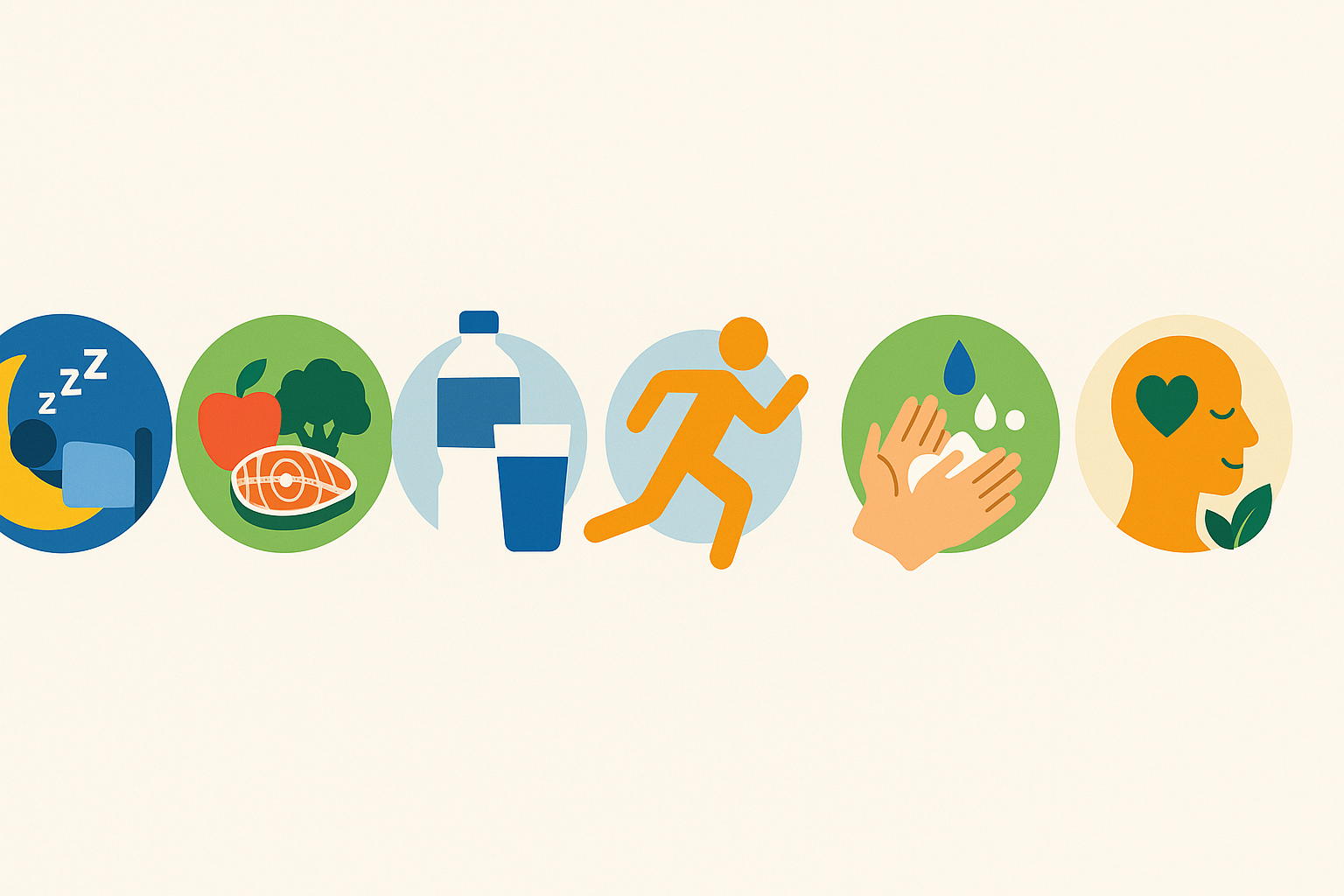
How Can You Prevent Getting Sick with Long-Term Lifestyle Commitments
Prevention is not a one-time action—it’s a cumulative result of consistent behaviors. For those earnestly asking how can you prevent getting sick, the answer lies not in reactive decisions but in sustainable lifestyle architecture. Health is a dynamic state that requires constant negotiation between risk and resilience. Daily choices, while seemingly mundane, accumulate over time to either support or erode your immune foundation.
A lifestyle that combines good nutrition, exercise, rest, hygiene, and mental wellness forms a multi-layered shield. It’s not about avoiding germs at all costs but rather preparing your body to respond with intelligence and strength when faced with them. Incorporating these habits into your daily framework is less about fear and more about empowerment—choosing vitality over vulnerability.
Frequently Asked Questions (FAQ)
How Can You Prevent Getting Sick During Seasonal Transitions?
Seasonal changes often bring abrupt shifts in temperature, humidity, and daylight, all of which can impact immune regulation and susceptibility to illness. To effectively address how can you prevent getting sick during these vulnerable times, it’s helpful to support the body’s adaptability. Incorporating seasonal produce into your diet ensures a rotating spectrum of antioxidants and micronutrients, which help modulate immune responses. Dressing appropriately for the weather—especially in layers to accommodate temperature swings—also plays a role in maintaining physiological equilibrium. Additionally, consider adjusting your sleep-wake cycle to align more closely with natural light patterns, as circadian health has a strong influence on immune regulation.
What Role Does Workplace Hygiene Play in How to Avoid Getting Sick?
Workplace environments are often overlooked hotspots for microbial transmission, particularly in open office plans, shared equipment, and poorly ventilated conference rooms. Understanding how to avoid getting sick in these settings involves a proactive approach to both personal and environmental hygiene. Wiping down shared keyboards, phones, and desk surfaces with alcohol-based disinfectants can significantly reduce microbial load. Encouraging sick colleagues to work from home and advocating for flexible sick leave policies helps minimize the spread of infections. Equally important is fostering a workplace culture that values preventive wellness strategies such as flu vaccinations and accessible hand sanitizing stations.
How Can You Prevent Getting Sick When Traveling Frequently?
Frequent travelers are exposed to a wide range of pathogens in airports, airplanes, hotels, and public transportation, making illness prevention especially critical. Those wondering how can you prevent getting sick on the go should begin by boosting immunity proactively several days before travel through optimal sleep, hydration, and nutrient-rich meals. Carrying personal hygiene essentials such as disinfecting wipes, travel-sized hand sanitizer, and even a portable air purifier can reduce exposure risk. Choosing aisle seats may increase contact with others, so selecting window seats when possible and minimizing unnecessary movement can be beneficial. Staying active during travel through light stretching and walking also improves circulation, which supports immune surveillance.
What Are the Psychological Strategies for How to Stop Myself from Being Sick?
Mental resilience has a powerful, though often underrated, role in physical immunity. For individuals seeking how to stop myself from being sick through psychological means, cognitive behavioral strategies can offer profound benefits. Reframing stress through gratitude journaling or solution-focused thinking helps mitigate chronic cortisol release, a known immune suppressor. Establishing boundaries around digital consumption, especially doomscrolling or exposure to negative news cycles, reduces anxiety that can lower immunity. Engaging in purpose-driven activities—whether through volunteering, spiritual practices, or creative expression—has been shown to bolster immune markers by promoting emotional stability and a sense of agency.
What Should I Eat When Figuring Out How to Feel Better When Sick?
Nutrition during illness goes beyond the cliché of chicken soup; it requires strategic nourishment that supports both symptom management and recovery. When exploring how to feel better when sick, focus on easily digestible foods rich in zinc, vitamin C, and omega-3 fatty acids. Steamed vegetables, bone broth, citrus fruits, and fatty fish like salmon can promote tissue repair and reduce inflammation. Avoiding heavy dairy and fried foods can prevent mucus buildup, which is often problematic in respiratory infections. Additionally, lightly fermented options like miso soup can restore beneficial gut bacteria, which are often depleted during illness and play a role in full recovery.
How to Keep From Getting Sick in a Shared Living Environment?
Shared homes—whether among roommates, family, or dormitory residents—require collective commitment to health practices. If you’re aiming to learn how to keep from getting sick in these spaces, start by establishing mutual agreements on cleanliness. Rotating responsibilities for disinfecting shared surfaces, using separate hand towels, and avoiding shared utensils during outbreaks can drastically reduce cross-contamination. Implementing HEPA-filter air purifiers in common areas can also help reduce airborne particles, particularly during flu season. Communication is key: encouraging open dialogue about early symptoms and practicing responsible self-isolation helps prevent minor illnesses from becoming widespread.
Can Technology Help You Discover How to Get Rid of Sickness Faster?
Emerging technologies are reshaping how we approach illness recovery, offering data-driven insights and personalized support. For those exploring how to get rid of sickness with tech, smart thermometers and symptom-tracking apps can help monitor the progression of an illness in real time. Telemedicine platforms enable swift consultation with healthcare professionals without the risks of in-person exposure. Some wearable devices now include features that track heart rate variability and sleep quality—both early indicators of immune decline. Leveraging these tools allows for earlier intervention, better resource management, and a more customized recovery plan tailored to your specific health metrics.
What Are Some Lesser-Known Supplements That May Help How to Prevent Getting Sick?
Beyond mainstream choices like vitamin C and elderberry, several lesser-known but well-researched supplements can support immune resilience. Astragalus root, for example, has shown promise in boosting white blood cell activity and modulating inflammatory responses. Beta-glucans, derived from mushrooms like reishi and maitake, enhance innate immune defense and are particularly useful during cold and flu season. N-acetylcysteine (NAC), an antioxidant precursor to glutathione, may improve respiratory health and support detoxification. When considering these options for how to prevent getting sick, always consult with a healthcare provider to ensure compatibility with your current medications and health status.
How Can You Prevent Getting Sick When Caring for Someone Ill?
Caregivers face heightened exposure risks due to prolonged proximity and frequent contact with bodily fluids. To better understand how can you prevent getting sick in caregiving scenarios, it’s essential to implement barrier practices. Wearing gloves, regularly changing masks, and disinfecting commonly touched surfaces like remote controls or light switches can significantly limit viral spread. Creating physical boundaries—such as assigning specific rooms and bathrooms to the sick individual—can further reduce exposure. Caregivers should also consider immune support through consistent hydration, restorative sleep, and adaptogenic herbs like ashwagandha, which help mitigate caregiving stress and bolster immune stamina.
How to Avoid Getting Sick When Resuming Social Activities Post-Isolation?
As communities resume normal activities post-pandemic or post-outbreak, it’s understandable to seek guidance on how to avoid getting sick while reintegrating into social spaces. Gradual exposure, rather than sudden immersion, can help the immune system reacclimate to public environments. Choose well-ventilated venues, opt for outdoor gatherings when possible, and maintain a social bubble of like-minded individuals who share your health-conscious values. Continuing mask use in crowded or enclosed areas, even when not mandated, provides an additional safeguard. Staying alert to your own health cues, such as early fatigue or throat irritation, and making the conscious decision to rest can help prevent relapses or further transmission.
Final Thoughts on How Can You Prevent Getting Sick in Everyday Life
Preventing illness is not a one-size-fits-all formula but rather an adaptable lifestyle anchored in awareness, consistency, and responsiveness. Understanding how can you prevent getting sick on a daily basis requires a synthesis of science-backed habits, emotional self-regulation, and environmental mindfulness. Rather than relying solely on reactive measures, the most effective prevention strategies are proactive, rooted in foresight and intentionality. By cultivating a holistic view of health—one that integrates physical, mental, and social well-being—you establish a foundation that makes illness less likely and recovery more efficient. With commitment and creativity, anyone can tailor a preventive wellness plan that meets their personal rhythms, responsibilities, and resilience goals.
Reflecting on the Essentials: Long-Term Strategies for Staying Well
Ultimately, the pursuit of health is both a science and an art. It’s about developing fluency in your body’s signals, aligning your habits with evidence-based practices, and making informed decisions that reflect both personal needs and collective well-being. Whether you are seeking to learn how to avoid getting sick during flu season, wondering how to feel better when sick, or trying to understand how to keep from getting sick amid travel or stress, the foundational principles remain the same.
Hydration, rest, nutrition, and mental clarity are not luxuries—they are biological imperatives. Creating an environment and a mindset that prioritize these elements requires commitment but offers profound dividends in the form of resilience, clarity, and vitality. Each mindful action taken today reduces the likelihood of illness tomorrow. In this way, the answer to how can you prevent getting sick is not hidden in complexity, but found in daily, consistent, essential habits that are entirely within your control.
Further Reading:
How Not to Get Sick: 5 Tips to Stay Healthy All Year Long
The Secrets to Never Getting Sick
Want to avoid getting sick? Here are some tips to boost your immunity


